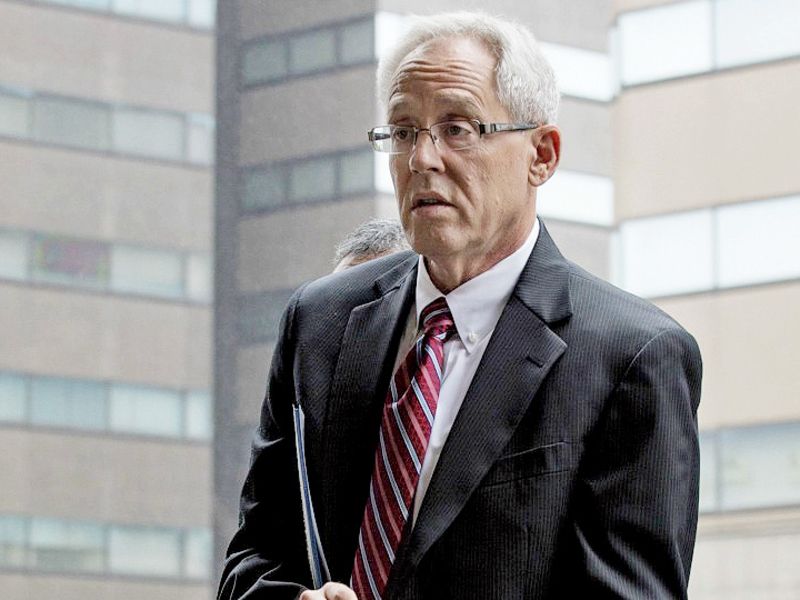
TOKYO — A Nissan Motor Co. manager, testifying under immunity in the criminal trial of former human resources executive Greg Kelly, admitted last week that he explored different ways of paying the automaker’s former CEO Carlos Ghosn without disclosing the remuneration.
But he did not say whether any of his ideas of concealment were implemented.
The question is central in Kelly’s trial in Tokyo. Kelly is accused of improperly compensating his boss, the former high-flying industry leader whose high salary and benefits were becoming an embarrassing issue in Japanese and European circles as he simultaneously ran Nissan, Renault and later Mitsubishi.
Ghosn was arrested and being prosecuted in Tokyo over the alleged financial improprieties, by concealing some $80 million in deferred payments. He fled Japan late last year for Beirut, beyond the reach of Japanese law.
Kelly, similarly arrested and charged, is on trial to answer for the allegations against Ghosn.
Toshiaki Ohnuma, head of Nissan’s secretariat office under Ghosn, took the stand last week as the first witness in the case. Ohnuma claims intimate knowledge of the alleged financial misconduct.
“There were two types of Ghosn’s remuneration,” Ohnuma testified as Kelly listened from the defendant’s table. “One that was already confirmed and paid, and the other that had yet to be paid. We explored ways as to how to pay this unpaid amount to Mr. Ghosn without disclosing it.”
Ohnuma said he managed Nissan’s secretariat — the small pool of people overseeing executive compensation, expenses, incentives and personnel issues for directors, corporate officers and auditors — from September 2007 until March 2019, four months after Ghosn’s arrest.
Ohnuma will give testimony through November.
He did not say last week whether he was successful in his plans to conceal deferred compensation to Ghosn.
Prosecutors said in their opening statement that they will produce documents and testimony showing that Kelly and Ghosn reached agreement on postponed compensation and failed to report it in breach of the law. Nissan, as a corporate entity, is also indicted in the case, and the company has said it will not contest the charges.
Ohnuma is one of at least two Nissan employees who took a plea bargain to escape prosecution in exchange for testifying against Kelly and Ghosn. Plea bargain deals are a new tool for prosecutors in Japanese law.
Kelly, who rose from his job as Nissan’s top U.S. human resources executive in Smyrna, Tenn., to become a director on its global board and a trusted Ghosn aide, has denied the charges. Kelly maintains that Nissan sought only legal methods for increasing Ghosn’s compensation to keep him from leaving Nissan for a competitor.
Kelly oversaw Nissan’s legal affairs, CEO office, secretariat and human resources from the fiscal year ending March 31, 2010, until April 2014. He was succeeded then by Hari Nada, who took on secretariat, legal and CEO office duties. Arun Bajaj took over human resources at that time. Nada is another executive who took a plea bargain. Bajaj left Nissan shortly after Ghosn’s arrest.
The trial is expected to last until next July. If found guilty, Kelly, 64, could face up to 15 years in Japanese prison.